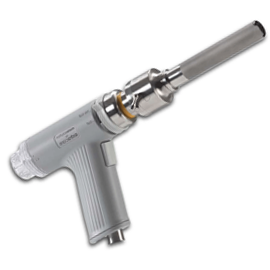Power Morcellatorlaparoscopic surgical device
A power morcellator is a laparoscopic surgical device used for the removal of the uterus or uterine fibroids. It was later found that the device had the potential to spread cancerous cells throughout the abdominal cavity. Many women and their husbands have filed lawsuits against morcellator manufacturers for not warning patients properly about the risks and dangers associated with its use.

What is a Power Morcellator?
In 1993, the first power morcellator was introduced into the US market. Its initial purpose was for uterine extraction but it was later applied to other organs. The use of a morcellator in surgery has now become commonplace. More specifically, a power morcellator is a surgical device designed for laparoscopic surgeries (minimally invasive) such as the removal of the uterus (hysterectomy) or uterine fibroids (myomectomy). This surgical tool makes it possible to remove the uterus or fibroids through a small incision by shredding the tissue into smaller pieces.
Despite decades of experience, there is a limited understanding of the short-term and long-term ramifications from morcellation.
Despite decades of experience, there is a limited understanding of the short-term and long-term ramifications from morcellation.
Adverse Events for the Power Morcellator
The U.S. Food and Drug Administration (FDA) regulates over-the-counter and prescription drugs in the United States, including biological therapeutics and generic drugs. This work covers more than just medicines. For example, fluoride toothpaste, antiperspirants, dandruff shampoos and sunscreens are all considered drugs.
An adverse event is submitted to the FDA to report any undesirable experience associated with the use of a medical product in a patient. For drugs, this includes serious drug side effects, product use errors, product quality problems, and therapeutic failures for prescription or over-the-counter medicines and medicines administered to hospital patients or at outpatient infusion centers.
Regarding more information related to this product please check out this link to the FDA website.
Current Power Morcellator Law Suits
Many women and their husbands have already filed lawsuits against several manufacturers after being diagnosed with an aggressive uterine cancer such as leiomyosarcoma. They claim that device makers did not warn patients properly about the dangers and risks associated with the use of morcellators.
If you or your spouse had a hysterectomy or myomectomy and were then diagnosed with cancer, you can be compensated for your medical expenses, pain, and suffering.
We want to hear from you
Speak with a representative now
Phone: (888) 430-5470
Email: [email protected]


